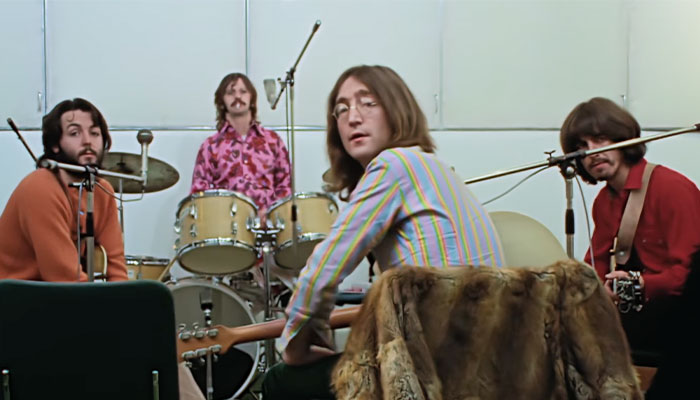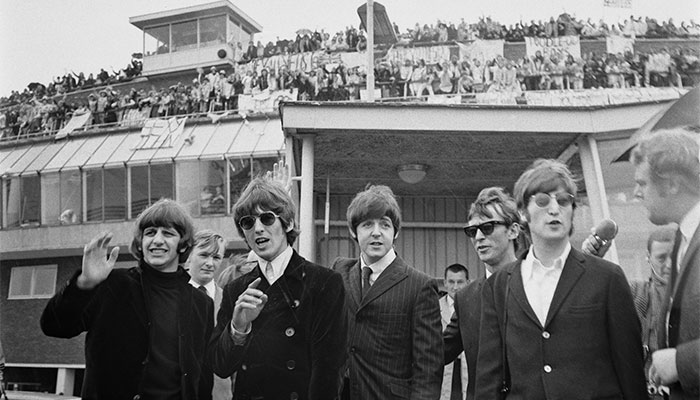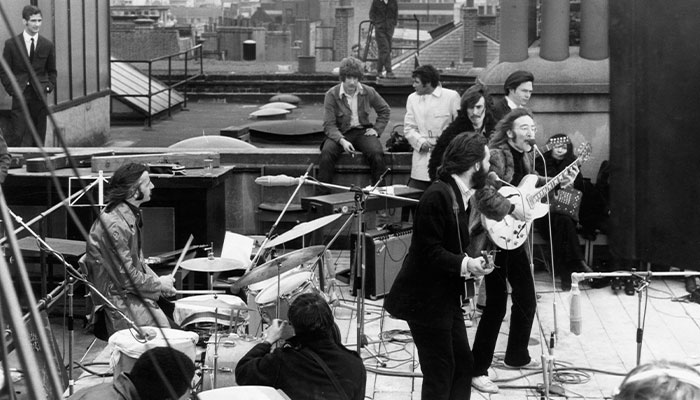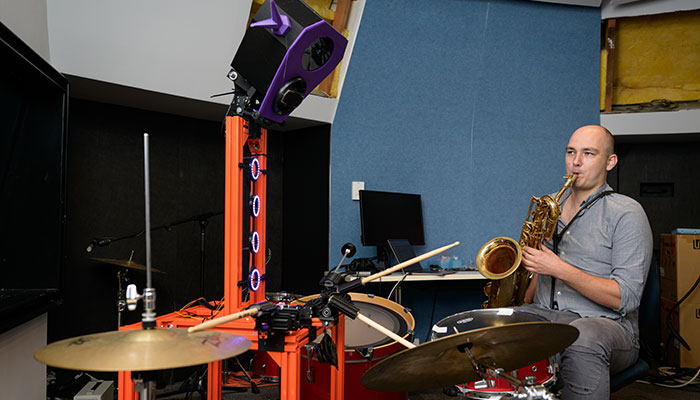After more than 50 years, the public will get another fly-on-the-wall look at the last gasps of creativity and camaraderie from one of the world’s most successful and enduring rock bands, the Beatles.
Director Peter Jackson, the creator of the film versions of The Lord of the Rings and The Hobbit, was recruited to make sense of more than 57 hours of Beatles footage recorded in January 1969 that had been sitting in a vault.
Get Back was originally planned as a cinema release but morphed into a three-part documentary, showing the Beatles in a completely different light from their portrayal in the original, and somewhat sombre, Let It Be documentary released in May 1970, a month after they officially disbanded.
No matter how good an artist and the music they create, without exposure it means nothing.
Michael Lindsay-Hogg’s original 1970 edit documented the breaking up of a band, highlighting creative differences, apathy, petty squabbling and shifting dynamics as the sanctity of the recording studio was no longer restricted to a select few. (As Paul McCartney wryly observes: “It’s going to be such a comical thing. Like in 50 years’ time they broke up because Yoko sat on an amp.”)
With Jackson’s project we see the band in a completely different light. The mood at Twickenham film studios and the basement of 3 Savile Row (the London headquarters of Apple Corps) now appears upbeat, with their brilliance and creative genius on display.
Social media buzz
Social media is abuzz with trailers and teasers of the upcoming November release, but why is there still such a fascination with a musical group that disbanded more than 50 years ago?

All together now: The Beatles in the studio recording Let It Be, their last album and the subject of Peter Jackson's new documentary series. Picture credit: Walt Disney Studios/YouTube
Associate Professor Jordi McKenzie from Macquarie Business School said a number of factors contribute to the Beatles’ enduring success, many tied to the dynamic societal changes that occurred in the 1960s.
“That era of history marked significant changes in both music and society, more generally,” McKenzie says. “At the same time, Lennon and McCartney were both formidable songwriters and they reinvented themselves continuously during their career.
- Global demand for Australian books revealed in new study
- In a crisis, it's the simple things that can boost your mental health
"On the surface, many of their songs appear simple but they are actually not, which certainly contributed to their uniqueness and success.”
He said the possibility of a musical act achieving such stardom in today’s era of musical streaming and lower record sales was unlikely.
“Beyond the cultural era, factors related to both the demand and supply of music have changed through time. For example, the way music is promoted and distributed has evolved, as has the way that people consume and share information about music.”
Gatekeeper bias
McKenzie suggests that the music industry has always understood the economic returns to superstardom and that the entire model is set up to identify and promote the next big artist.

Love, love us do: Crowds of UK fans farewell the Beatles as they leave for a US tour in 1966 ... a musical act achieving equivalent stardom these days is unlikely, says Associate Professor Jordi McKenzie.
“But no matter how good an artist and the music they create, without exposure it means nothing. This is where the record labels play their part as gatekeepers between those who make music and those who consume music. Touring and radio play were always the main objectives in connecting artists with consumers.
“The role of the record company as ultimate gatekeeper has given way to new models, where artists connect directly with fans via social media. Fundamentally, however, many similarities still exist between artist success comparing then and now.
"Beyond talent, exposure is still key and in an increasingly crowded marketplace with various forces competing for attention.”
With playlists replacing albums for many consumers, the curators of such lists hold similar power to the radio programmers of yesteryear.
By controlling exposure, gatekeepers of different forms have always played a significant role in determining what songs and artists become popular. McKenzie and collaborators have shown this in research related to Triple J’s Hottest 100 and the selection of songs featured on their annual CD release following the event.
“Our research has shown that Triple J directly influenced musical tastes when we analysed the relationship between the songs the radio station put on its annual Hottest 100 CD (a subset of songs from the full list) and the one-off ‘Hottest 100 of the last 20 years’ poll held in 2013.
“A clear bias existed towards songs that featured on the annual CDs relative to those that didn’t, even after controlling for relevant variables such as the song’s original Hottest 100 ranking in its respective year and the age of the song.
“It is no surprise that radio stations particularly favoured the Beatles, which in turn reinforced their fanbase and ultimately album sales.”
Song streams
The other way music consumption has changed relates to the arrival of streaming services, such as Spotify, Apple Music and Pandora.

Goodbye: The Beatles give their last live performance on the roof of 3 Savile Row.
“With most people now consuming music via streaming services, those platforms now hold the position of industry gatekeeper by controlling the algorithms that determine what is or isn’t heard. With playlists replacing albums for many consumers, the curators of such lists hold similar power to the radio programmers of yesteryear.”
As recording artists have moved away from the traditional record model and create songs intended to maximise streams, McKenzie said the likelihood of another musical group reaching the heights and enduring popularity of a band like the Beatles were slim.
- Home or office? New research reveals where workers perform best
- Backyard bird count shines a light on urban bird life
“While it would be unreasonable to suggest there will never be another popular music artist as successful as the Beatles were in their time, it would not seem likely with the current industry business model and patterns of consumer behaviour.
“Whether this is a good or a bad thing is not really the question, as ultimately consumers and producers will both pursue their own interests, which will simply generate a different equilibrium. Perhaps what we lose by not having one single artist or band providing such a focal point for a generation (or generations) is more variety.”
Beatle folklore
It is well known in Beatle folklore that the planned 1969 album was shelved for a year until Phil Spector was brought in to work on the project. (Many years later, McCartney would revisit the master tapes and rework the Let It Be album with an alternative mix, stripping back Spector’s embellishments and overdubs in a release called Let It Be...Naked.)
Following the band’s last live performance on the roof of 3 Savile Row – John Lennon ended the show with the legendary quip: “I'd like to say thank you on behalf of the group and ourselves. And I hope we passed the audition.”
The Beatles did return to the studio in 1969 for one last hurrah as a unit — this time it was back at Abbey Road where they recorded the iconic eponymous album.
Jordi McKenzie is Associate Professor at Macquarie Business School. His research interests are cultural and sports economics, and industrial organisation with a principal focus on the entertainment industries.



